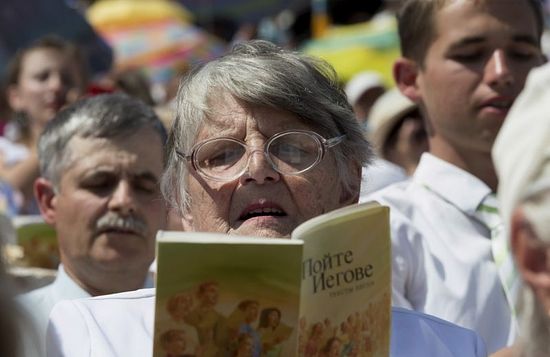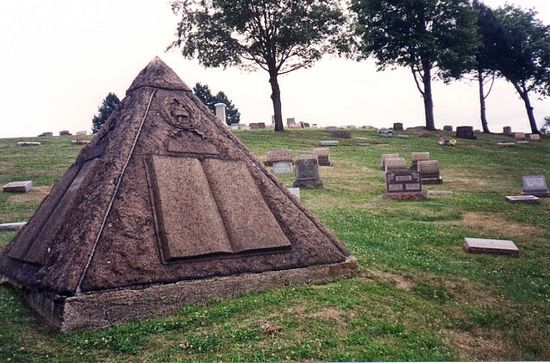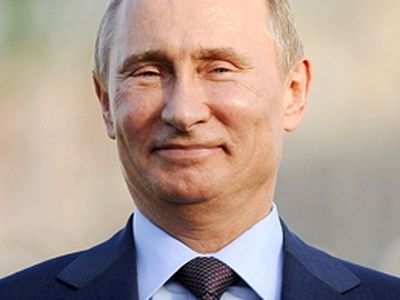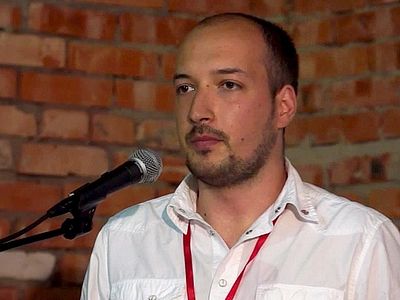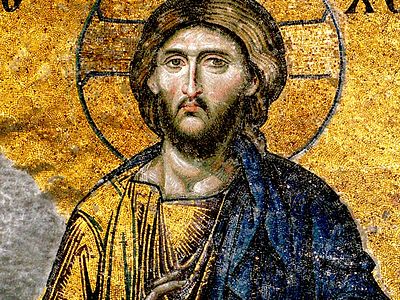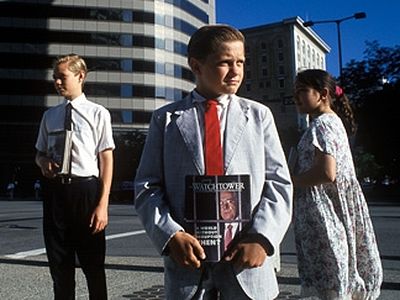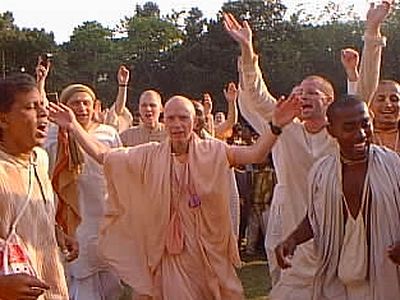Recently, the Supreme Court of the Russian Federation declared the activities of “The Administrative Center of the Jehovah’s Witnesses in Russia” extremist, and that organization is now basically banned in Russia, unless they should make an appeal and win it. This news caused quite a stir among our readers. Most agree that the Jehovah’s Witnesses truly are an insidious, authoritarian sect that deprives adherents of certain basic freedoms. But Western-world Christians have trouble with such bans, because of the freedom of religion laws that most take for granted. And so, many have reacted very negatively to this new Russian law.
This legislature is secular and does not proceed from the Russian Orthodox Church, but nevertheless we thought it interesting to read some commentary on a hearing by an eyewitness who is familiar with legal processes, Igor Kondrashev. This commentary was first published in Russian on the website, Stavros.
But let your communication be, Yea, yea; Nay, nay:
for whatsoever is more than these cometh of evil
(Mt. 5:37)
On April 12, 2017, the session of the Supreme Court on the complaint of the Ministry of Justice of the Russian Federation on the liquidation of the religious organization called, “The Jehovah’s Witnesses Administrative Center in Russia,” and several hundred local religious organizations, continued. Beyond a doubt, today’s session has become unique, because for the first time in history in a conflict between the Jehovah’s Witnesses and the State, those who for many years were members of the sect but left it, became witnesses in the case. They expressed a wish to give evidence as individuals whose rights and freedoms, in their view, were violated by the organization.
The situation was rather intense, because over 200 Jehovah’s Witnesses who were present at the session had to listen to evidence from four of their former co-religionists who showed the other side of the organization’s inner life. As we know, Jehovah’s Witnesses are strictly forbidden to communicate with so-called “apostates”—former members of the sect whose activities are directed against the organization. One of these witnesses for the case was a woman who had become a member of the sect as far back as 1983! She was expelled from the organization for association with a friend who had been "disfellowshipped" earlier.
I had never been present at sessions like this before, and I decided especially to attend and see everything with my own eyes. Why was I astonished by this session? First of all, the defense for the Jehovah’s Witnesses gave their arguments. It should be noted that all the lawyers who represent the interests of the Jehovah’s Witnesses in litigation are committed members of the Jehovah’s Witnesses themselves, and workers at their Administrative Center. There were elders among them as well. The evidence of the witnesses for the defense was also interesting. As such, four members of the sect were invited—people engaged in science and having senior academic degrees.
I don’t want to weary readers with the legal aspects of the case and the course of the proceedings. I will point out only the main ponts. The prosecution of representatives of the Russian Ministry of Justice aims to prove a direct link between the “Local Religious Organizations of the Jehovah’s Witnesses” on the periphery and the Administrative Center and the supervision of the former by the latter. This is necessary to make the Administrative Center accountable for the supervision of the Local Religious Organizations which have been recognized as extremist for the storage or propagation of materials that were earlier classified as extremist. The defense, in its turn, is trying to prove that there is no supervision over Local Religious Organizations.
The main problem is that the actual state of affairs inside the organization and formally the legal side of the issue are separated from each other. Anyway, legal casuistry and resourcefulness were needed to present the case in a good light for the Administrative Center. If it were a secular organization, acting in defense of its interests, the lawyers could only be praised for their very professional competence and acts. But in our case we are speaking of a religious organization that poses as the most principled and honest in the world. As a result, in my opinion, the organization’s lawyers along with the Administrative Center’s chairman and his deputy had to play the hypocrite and act against their consciences in order to justify the Administrative Center and the Local Religious Organizations. It can only be characterized as a “beneficial lie”. And this lie can be justified in the Jehovah’s Witnesses consciousness as if it were the supremacy of the will of God over the laws of Caesar.
Nevertheless, these tactics of legal resourcefulness are not new for the Jehovah’s Witnesses Administrative Center in Russia. For many years the Jehovah’s Witnesses Local Religious Organizations have been building and putting into operation their “Kingdom Halls” not as places of public worship, but as private buildings, which are later transferred to or obtained by Local Religious Organizations from natural persons—members of the Jehovah’s Witnesses. And a legal structure like this enables them to avoid the complex process of getting permission for the construction of places of worship.[1]
The defense of the Administrative Center and its witnesses have made the following points:
- The Administrative Center provides only canonical (spiritual) care to Local Religious Organizations and religious groups (communities) exclusively in the form of recommendations.
- Local Religious Organizations and religious groups are quite independent of the Administrative Center in making decisions, for example in approving statutes, setting up and closing Local Religious Organizations.
- The Administrative Center is not the source of religious leadership and suggests no interpretations of doctrinal matters to Local Religious Organizations’ members and those of religious groups (communities). All this is received exclusively from the Ruling Council in the USA.
- The religious beliefs of Jehovah’s Witnesses are based exclusively on the Bible (and not necessarily the New World Translation of it!) and they do not need to use publications by the Watch Tower Society.
- The Administrative Center doesn’t coordinate evangelical work of members of religious groups and their operations.
- Ordinary Jehovah’s Witnesses are not members of any religious organization and their actions are guided exclusively by their own initiatives and convictions.
Those who have ever been members of the Jehovah’s Witnesses even for a short time understand perfectly that all these statements are very far from reality. Each of the above-mentioned points is proven wrong by the internal documents, publications, and daily routine within the organization.
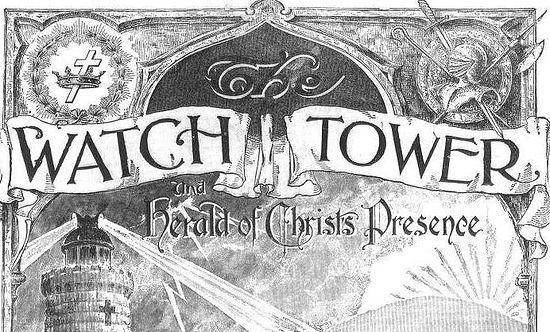 Early Watchtower magazine, the periodical of the Jehovah's Witnesses. The cross in the upper left corner is an exact copy of the Knights Templar symbol.
Early Watchtower magazine, the periodical of the Jehovah's Witnesses. The cross in the upper left corner is an exact copy of the Knights Templar symbol. The complication is that the Jehovah’s Witnesses canonical guidance and administrative management, carried out by the Administrative Center, are so interwoven that it is practically impossible to separate them. To explain this we should turn to the way that the Jehovah’s Witnesses organization works—on the basis of theocracy, a form of government that presupposes the combination and continuity of the spiritual and administrative power of God’s representatives on earth. In other words, from the doctrinal point of view of the Jehovah’s Witnesses differentiation is simply impossible here. But to present the case in court according to the formal letter of the law, they have to forget about theocracy and insist on the division of the Administrative Center’s rule into administrative and canonical ones.
I cannot provide a competent assessment of the legality of a structure like this. But it seems there is a legislative gap here, which enables them to make this separation legally sound. After all, laws are supposed to reflect reality, not conceal it. Even if the Jehovah’s Witnesses were to win this lawsuit legally, they have already lost it spiritually. They have displayed that for them, corporate interests are above Christian ideals and personal convictions.
[1] Legal formalism among the Jehovah’s Witnesses has a long history. It should be recalled that the second President of the Watch Tower Society was a lawyer, Joseph Franklin Rutherford. He had absolute power, having abolished the Corporation’s Committee of Directors, aided by the fact that formal elections were not held at annual corporate meetings. Thus he succeeded in removing most of the directors of the Watch Tower Society without a general vote (A. H. Macmillan, Faith on the March. Englewood Cliffs, N. J., Prentice-Hall, 1957, pp. 78-80).
